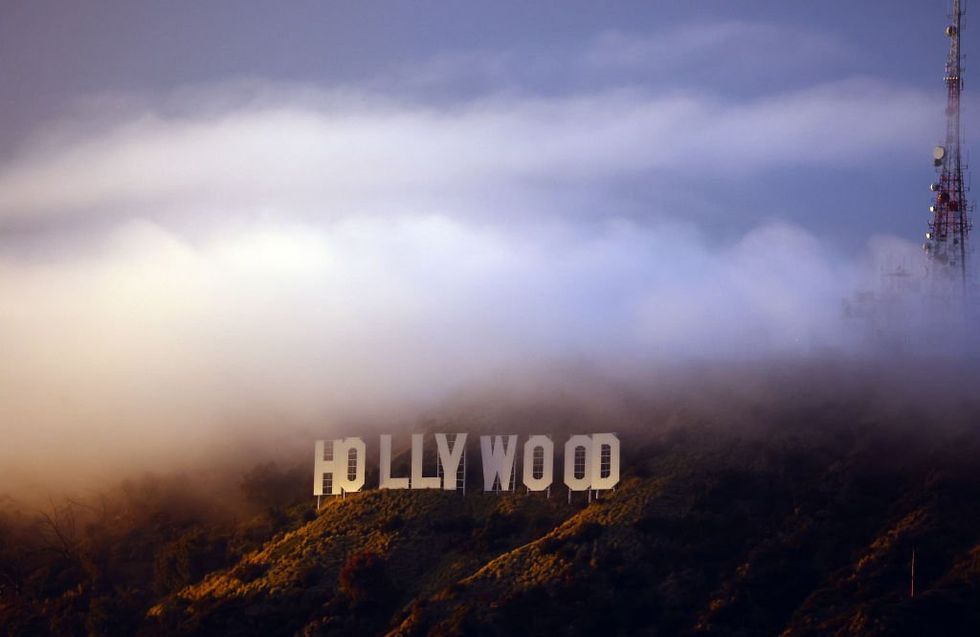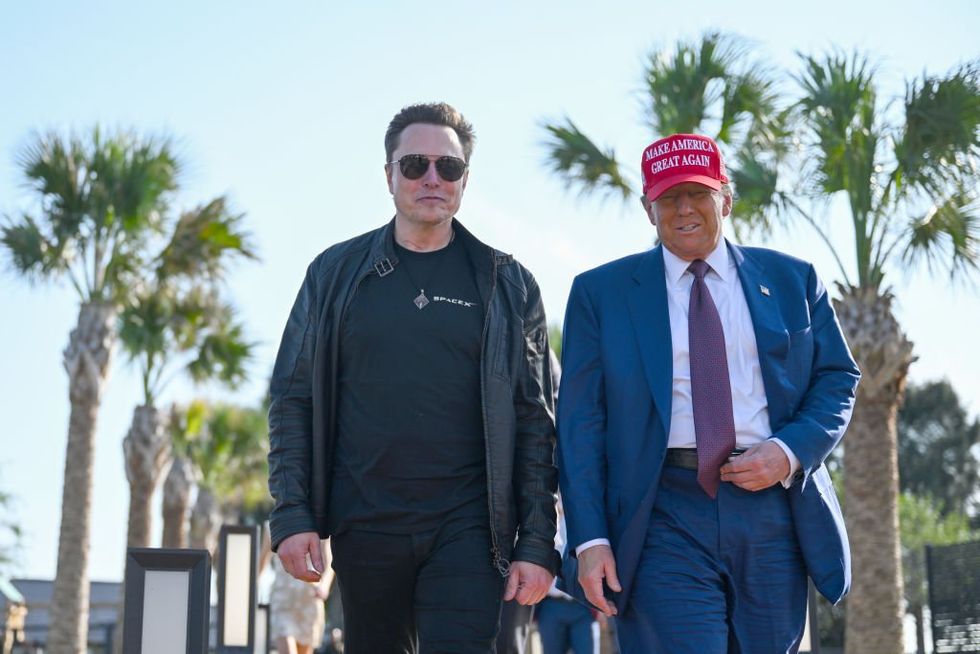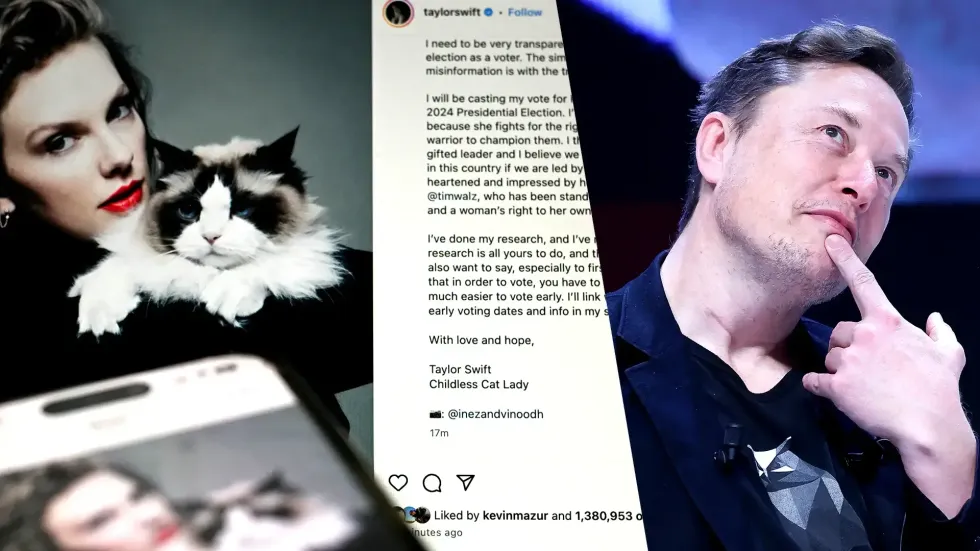Is dying Hollywood doomed to churn out slop?
The secret’s out on the first Hollywood studio to ink a deal with an automated content company. Lionsgate, familiar from the "John Wick" and "Hunger Games" franchises, is all in on an agreement with data mining and research firm Runway to train high-powered computer models on its library of intellectual property, the better to accelerate the production of more fully exploited spinoff material — ideally, of course, for cheap. The corporate spin is no surprise. Cristóbal Valenzuela, Runway’s CEO, insisted in a statement to the Hollywood Reporter that “the history of art is the history of technology, and these new models are part of our continuous efforts to build transformative mediums for artistic and creative expression. The best stories are yet to be told.” Michael Burns, Lionsgate’s vice chair, said, “Filmmakers are already excited about its potential applications to their preproduction and postproduction process.” Even with the very best of intentions and the most dialed-in technological augmentation, the most likely outcome of the automation of entertainment is its further consolidation in still fewer hands for the sake of flooding our lived environment with slop produced by bots. On paper, the logic is attractive enough. Hollywood’s brutal experience in the COVID/BLM/MeToo buzzsaw left its talent pipelines in tatters — and then the tech industry’s large language models hit the scene. Now, computers can crank out a theoretically endless supply of audiovisual content that’s getting sharper, more realistic, and more competitive with big-budget CGI-laden blockbuster fare each day. Not to worry; much of this material is best suited to dumb fantasy. That’s what audiences are best suited to, right? More about that in a minute. First, consider the darker side of the deal. Cheap is a temptation, and it’s often one fueled by ulterior motives or structural necessities imposed by structures which themselves are not all that necessary. In the case of Hollywood, the culprit is consolidation. On the surface, the fusion of so many disparate companies into a cartel-like handful of mega-mergers — one in keeping with what seem to be the rules of our economic and financial system — is a result of the harsh realities of capitalism and competition. Teched-up kids today gravitate away from films. International markets are where the big money is. It’s better for bottom lines to scrap finished films like "Batgirl" or "Coyote v. Acme" and write them off as a loss. Soulful cinema for mature adults (you know, fully functional grown-ups) doesn’t sell, doesn’t scale, and, worst of all, doesn’t spin off a waterfall of derivative IP — the licensing and brand deals that fill the world with action figures, backpacks, lunch boxes, phone games with in-app purchases, etc., etc., etc. Like I said — on paper, it all makes sense. But why is it better for the ailing industry to consolidate so drastically in the first place? Here, the dirty secret is easy enough to divulge — it’s actually not better for the film and television industry, which includes, y’know, vast numbers of people in talent, crew, production, and subsidiary but essential components like trucking, props, warehouses, catering, craft services, audio and video equipment and servicing — the works. The consolidation we’ve seen in Hollywood over the past ten years simply favors the biggest firms in the industry. And it favors the biggest firms in the industry because the whole entertainment sector has been relentlessly consolidating into the hands of a very few individuals. For an illuminating if dispiriting side quest, read up on the latest about legendary talent kingpin Irving “Poison Dwarf” Azoff and his circular empire of celebrity stars, tours, venues, and cartel-like corporations. I won’t link to the latest about other key figures in the nexus of entertainment power consolidation, such as P. Diddy. Suffice it to say that the entertainment industry we ought to have is one free of corruption, self-dealing, and institutionalized, almost automated vice. The solution there, some say, is to cut more of those pesky humans out of the process, just as, ostensibly, we ought to do in science, politics, and everything else. Human self-government was tried and found wanting! Or so we’re told. If all we want is cross-eyed escapism, why not climb into the pod, slip on the helmet, and go sail away with the bots? And that brings us to the true heart of the problem. We all know already that, especially on the internet, routinized content production converges on what we might kindly call filler or, more honestly, spam. Even with the very best of intentions and the most dialed-in technological augmentation, the most likely outcome of the automation of entertainment is its further consolidation in still fewer hands for the sake of flooding our lived environment with slop produced by bots. But oh, the rejoinder goes — such a high price may sting to pay, but how much greater


The secret’s out on the first Hollywood studio to ink a deal with an automated content company. Lionsgate, familiar from the "John Wick" and "Hunger Games" franchises, is all in on an agreement with data mining and research firm Runway to train high-powered computer models on its library of intellectual property, the better to accelerate the production of more fully exploited spinoff material — ideally, of course, for cheap.
The corporate spin is no surprise. Cristóbal Valenzuela, Runway’s CEO, insisted in a statement to the Hollywood Reporter that “the history of art is the history of technology, and these new models are part of our continuous efforts to build transformative mediums for artistic and creative expression. The best stories are yet to be told.” Michael Burns, Lionsgate’s vice chair, said, “Filmmakers are already excited about its potential applications to their preproduction and postproduction process.”
Even with the very best of intentions and the most dialed-in technological augmentation, the most likely outcome of the automation of entertainment is its further consolidation in still fewer hands for the sake of flooding our lived environment with slop produced by bots.
On paper, the logic is attractive enough. Hollywood’s brutal experience in the COVID/BLM/MeToo buzzsaw left its talent pipelines in tatters — and then the tech industry’s large language models hit the scene. Now, computers can crank out a theoretically endless supply of audiovisual content that’s getting sharper, more realistic, and more competitive with big-budget CGI-laden blockbuster fare each day.
Not to worry; much of this material is best suited to dumb fantasy. That’s what audiences are best suited to, right?
More about that in a minute. First, consider the darker side of the deal. Cheap is a temptation, and it’s often one fueled by ulterior motives or structural necessities imposed by structures which themselves are not all that necessary.
In the case of Hollywood, the culprit is consolidation. On the surface, the fusion of so many disparate companies into a cartel-like handful of mega-mergers — one in keeping with what seem to be the rules of our economic and financial system — is a result of the harsh realities of capitalism and competition. Teched-up kids today gravitate away from films. International markets are where the big money is. It’s better for bottom lines to scrap finished films like "Batgirl" or "Coyote v. Acme" and write them off as a loss. Soulful cinema for mature adults (you know, fully functional grown-ups) doesn’t sell, doesn’t scale, and, worst of all, doesn’t spin off a waterfall of derivative IP — the licensing and brand deals that fill the world with action figures, backpacks, lunch boxes, phone games with in-app purchases, etc., etc., etc.
Like I said — on paper, it all makes sense. But why is it better for the ailing industry to consolidate so drastically in the first place? Here, the dirty secret is easy enough to divulge — it’s actually not better for the film and television industry, which includes, y’know, vast numbers of people in talent, crew, production, and subsidiary but essential components like trucking, props, warehouses, catering, craft services, audio and video equipment and servicing — the works. The consolidation we’ve seen in Hollywood over the past ten years simply favors the biggest firms in the industry.
And it favors the biggest firms in the industry because the whole entertainment sector has been relentlessly consolidating into the hands of a very few individuals. For an illuminating if dispiriting side quest, read up on the latest about legendary talent kingpin Irving “Poison Dwarf” Azoff and his circular empire of celebrity stars, tours, venues, and cartel-like corporations.
I won’t link to the latest about other key figures in the nexus of entertainment power consolidation, such as P. Diddy. Suffice it to say that the entertainment industry we ought to have is one free of corruption, self-dealing, and institutionalized, almost automated vice.
The solution there, some say, is to cut more of those pesky humans out of the process, just as, ostensibly, we ought to do in science, politics, and everything else. Human self-government was tried and found wanting! Or so we’re told. If all we want is cross-eyed escapism, why not climb into the pod, slip on the helmet, and go sail away with the bots?
And that brings us to the true heart of the problem. We all know already that, especially on the internet, routinized content production converges on what we might kindly call filler or, more honestly, spam. Even with the very best of intentions and the most dialed-in technological augmentation, the most likely outcome of the automation of entertainment is its further consolidation in still fewer hands for the sake of flooding our lived environment with slop produced by bots.
But oh, the rejoinder goes — such a high price may sting to pay, but how much greater the pleasure and payoff to reap as a result! We’re talking premium entertainment for a relative few beyond their wildest dreams. Entertainment that fully merges with “real life” to the degree that those few — in a class so coveted it’ll drive unimaginably productive competition just for a chance to enter — will experience an altogether new form of life as semi-immortal gods.
Yes, an overall scenario as depressing as the botslop era we’re facing requires the most overclocked and insane visions of pleasure to compensate.
Industry people who won’t go down without a fight are focused on legal counterattacks. A major suit against Runway is working its way up the chain right now. But for all the importance of preserving the rule of law, if you think copyright and trademark will save us from the botslop cartel, you’re not going to make it. Art begins with artists — disciplined visionaries devoted to forging real spiritual connections with their audiences for the sake of their souls.
Hollywood has earned its share of hate for making a money machine out of spiritual vampirism, but audiences know the work of the true artist is worth far more than a tub of popcorn, a vat of Baja Blast, and a pretzel the size of your head.
Originally Published at Daily Wire, World Net Daily, or The Blaze
What's Your Reaction?
































































































